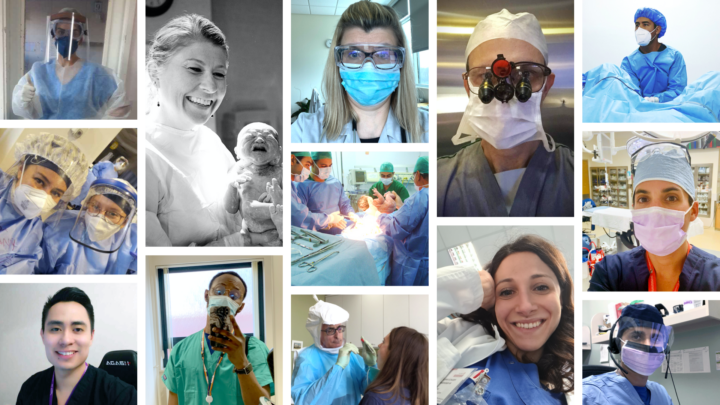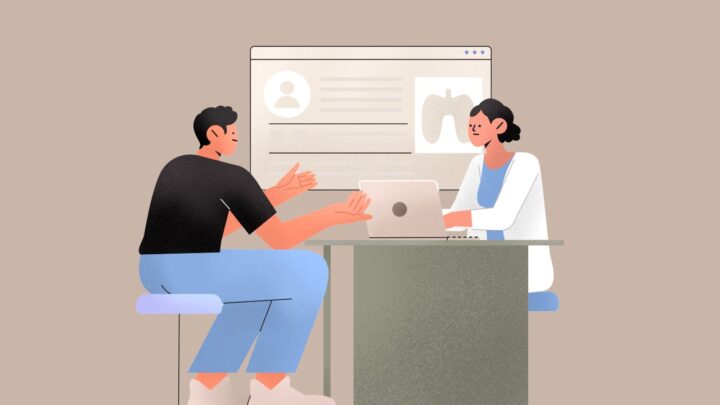
One of the most difficult parts of being a doctor is having to deliver bad news to a patient, or worse, inform a patient’s loved ones that the patient has died.
To prepare future doctors for facing this inevitably hard task, Oregon Health & Science University now requires all fourth-year medical students to pass an exam in compassionate communication. In addition to clinical skills, all students must illustrate that they know how to admit to a medical mistake, deliver a death notice, and communicate effectively and ethically while demonstrating compassion, before graduating.
In light of this story, we asked physicians, “When it comes to delivering bad news to patients or to patients’ family members, do you feel that your medical schooling adequately prepared you for difficult communication and its nuances?”
Out of the 1076 physicians who responded from over 35 countries, a majority (62 percent) of doctors said ‘no.’ Many claimed that learning this can of skill can only be done through experience:
“I have learned in the course of studies but certainly not studying a specific exam. I followed the example of the doctor I was assigned in the internship in the ward and later, during the specialization, in the clinic.” – Rheumatology, Italy
“No, but I sure learned quickly during residency. Why would any patient want to have the ‘difficult conversation’ with a medical student in the first place?!” – Allergy & Immunology, US
“During med school I was trained to have the conversation in practice settings with patient actors. But it really does not prepare you when it has to be done for real.” – Psychiatry, US
“We had one day of training on this and related subject. 4 years of learning medicine, and one day to learn compassion.” – Physical Medicine & Rehabilitation, US
“This is not really taught in med schools in France. In Canada, in Switzerland, yes.” – Cardiology, France
“Frankly I do not know if you can teach something that depends largely on your personal predisposition to ’empathy and the path that each of us performs in their professional growth.
I learned on my skin to handle difficult communication, probably at the cost of various errors and adjustments over time.” – Cardiology, Italy
“In college I did not get training for these difficult and delicate moments, however in my career as a doctor and surgeon I learned to do it after trial and error…” – General Surgery, Venezuela
“I believe that we did not come prepared to give this news; it is through experience and putting yourself in the place of the patient or relative that you are learning to say compassionately this type of news!” – Family Medicine, Spain
“I believe that currently the faculties prepare more or less well the doctor to be able to have a general knowledge of medicine, but nobody is prepared to act in difficult emotional situations.” – Orthopedic Surgery, Spain
However, 38 percent of responding doctors said, ‘yes.’ Many said that the majority of learning, however, came from watching their mentors and professors:
“See one, do one, teach one. I learned in medical school by watching my mentors deliver bad news, and emulating the good ones while learning how not to deliver bad news from the ones that couldn’t connect.” – Family Medicine, US
“Like many things, the first time is the hardest. If you have had good mentors, you at least have some frame of reference for what you should do and say.”- Emergency Medicine, US
“There was plenty of training and practice delivering bad news by the end of residency and med school. I also agree that a lot was learned watching others doing it poorly.” – Addiction Medicine, US
“Yeah, we had actors as well — they, and the associated discussions with the actors, mentors, and among ourselves, were actually pretty good. Nothing is as good as ‘real’ experience, of course, but the process we went through was very stressful on multiple levels, and simply dealing with our own internal stress was a big start.”– Pathology, US
“I had the good fortune of studying at a university where they gave us a class in the psychiatry module called ‘gonia, Duel and Death’, where they explained how to deliver bad news, such as reporting that a patient was dying or was going to die.” – General Surgery, Venezuela
“Bad news is part of our profession but unfortunately we are not prepared to give it.” – Pediatric Surgery, Venezuela
The poll was fielded in April of 2018. 1,076 physicians responded to the poll. The margin of error for the global poll was ±3%. More information about SERMO polling methodology can be found here.
Are you a doctor? Join SERMO to discuss your med school experience with other global physicians.














